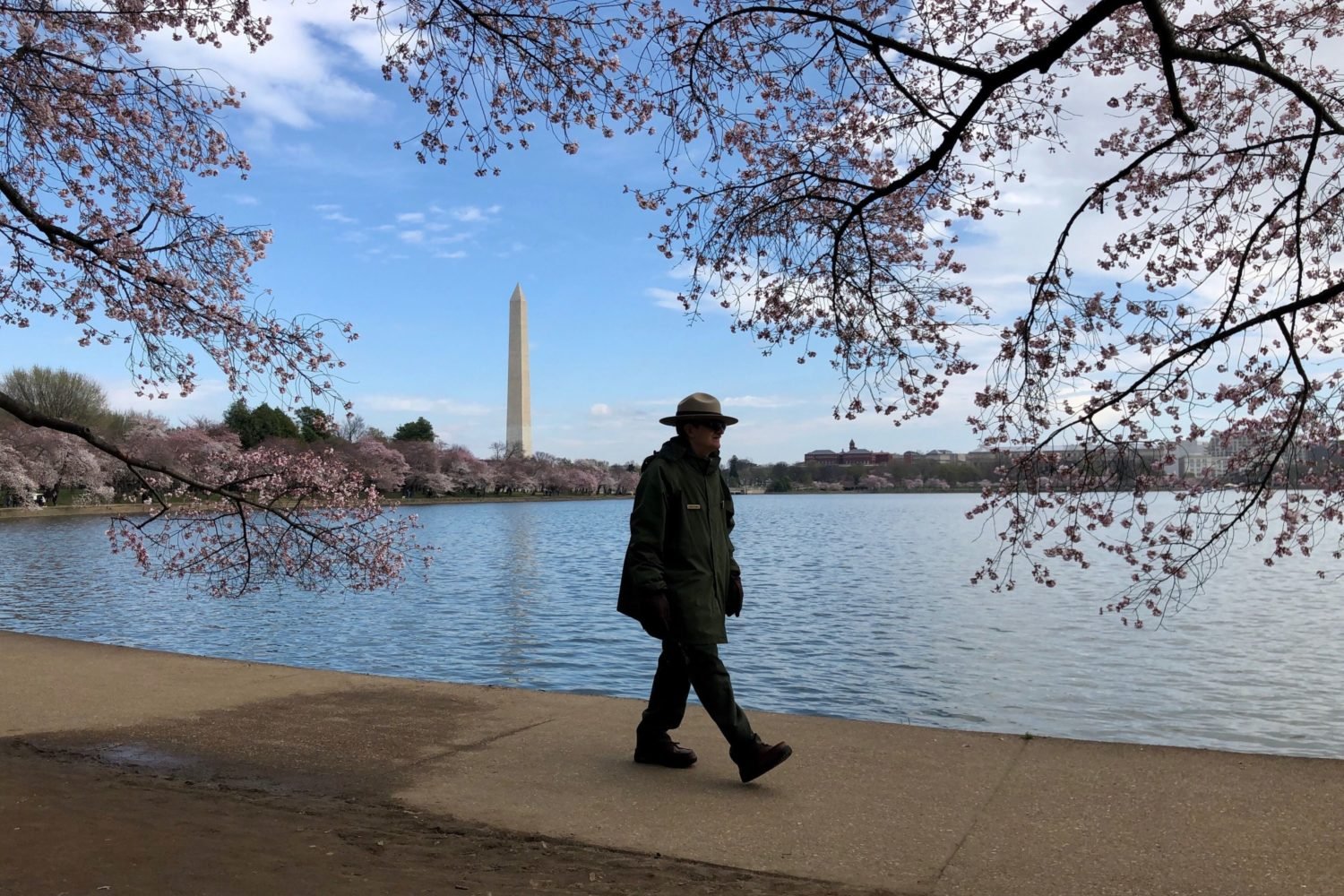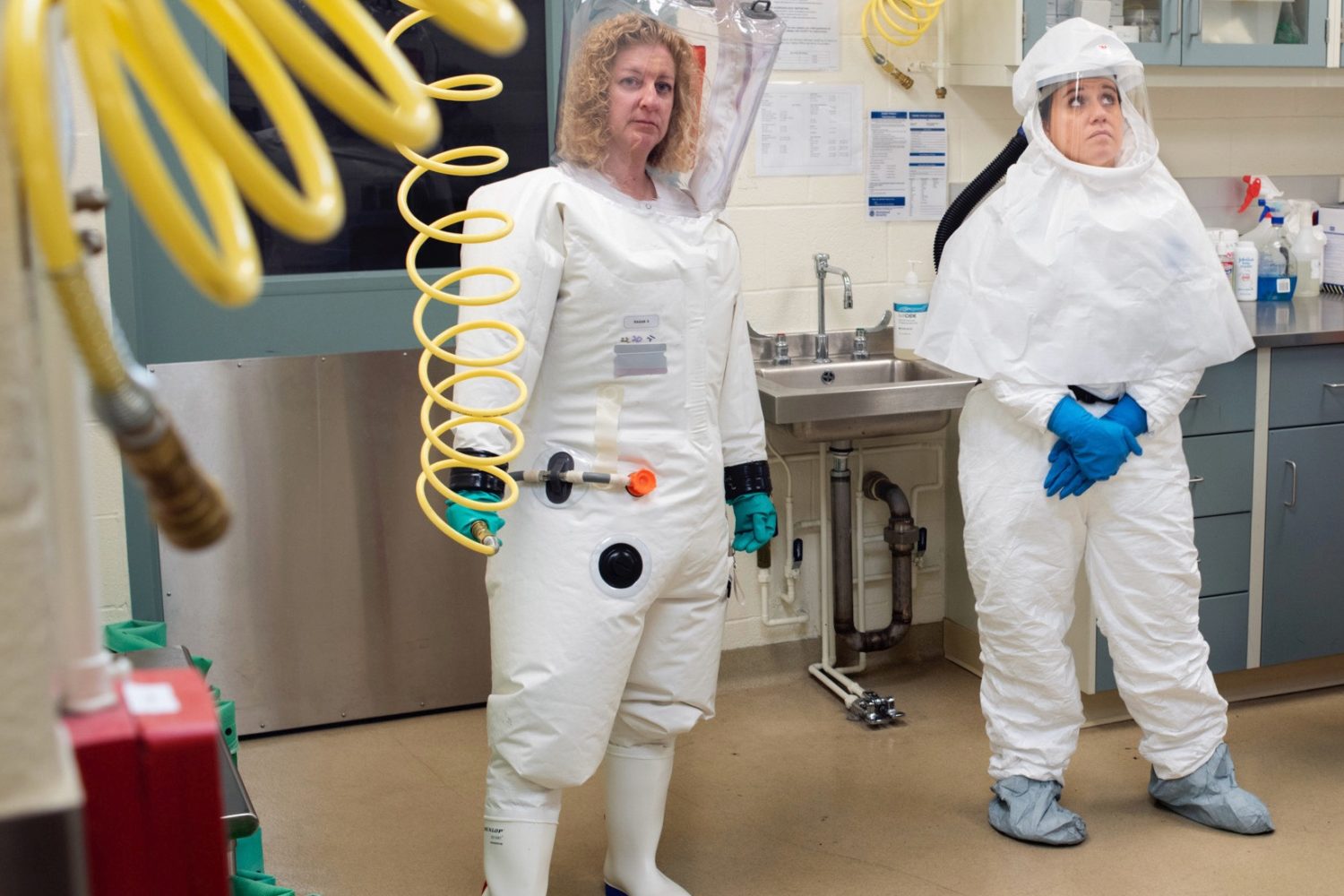About Coronavirus 2020
Washingtonian is keeping you up to date on the coronavirus around DC.
I’m a 44-year-old father of two who’s working from home and trying to manage my new life in coronavirus quarantine. I’m considering making two purchases over the internet that, I hope, will make my life a little more pleasant while we all hunker down. The first is a pair of dumbbells that I can use to work out from home. The second is a pair of slippers that will make me a little more comfortable, since I’m now in the house all day. But I’m wondering whether it’s ethical to make these purchases. Yes, these transactions will put money in the hands of businesses that may be facing hardship. But won’t they also put the workers who package and deliver the items at increased risk? I’m getting along fine without these items right now, but I would like to have them.
Dr. Karen Stohr, PhD, associate professor of philosophy at Georgetown University and senior research scholar at the Kennedy Institute of Ethics at Georgetown University: You’ve nailed the ethical problem perfectly. On the one hand, it’s helpful to businesses if those of us who are in a position to spend extra money do so. On the other hand, it seems like we’re putting workers at extra risk of becoming sick. I think you’re right to put the welfare of the workers first. The recent reports of COVID-19 among workers in Amazon’s warehouses make it clear that our online purchasing habits could be putting others in harm’s way. It’s important that people be able to keep their jobs, but it’s also important they be able to do those jobs as safely as possible. In order to make ethical decisions during this pandemic, we have to think well beyond our own situation and work together to reduce the risk for everyone.
Let’s first talk about how we distinguish necessities from optional extras. Many states have closed non-essential businesses, like the ones that sell dumbbells and slippers. But it’s not easy to pin down a definition of what’s necessary. For a parent trying to work at home, games and toys to occupy young children for a few hours might indeed be a necessity (unlike, say, the brownie mix I bought at the grocery store last week). Exercise equipment contributes to our physical and mental health, so I don’t think it’s unreasonable to purchase dumb bells. Only you can decide how essential those slippers are to your well-being, but if they make a real difference to your current ability to be a good parent, partner, and employee, I think you could justify it.
But we still have to consider the impact on workers and on other people in our community who are also trying to purchase what they need, often from the same places we are. There are two key considerations here. The first is whether our purchasing behavior is clogging up the pipeline and delaying deliveries of essential items to those who need them quickly. After all, there are only so many warehouse workers and UPS drivers. It’s hard for individuals to know whether their inessential purchases are getting in the way of someone else’s necessary supplies. We have to trust companies that they are prioritizing their deliveries in the right way. But it’s something to keep in mind and also something we should press corporations to be transparent about.
The second consideration is about the distribution of risk. Right now, some people in our society are bearing far more risk of COVID-19 than others. Health care providers are obviously taking on increased risks of becoming ill, but so are grocery store employees, Instacart workers, and restaurant delivery personnel. Many of them are in higher risk categories themselves, or are taking care of others who are high risk. Those of us who are lucky enough to have jobs that enable us to work from home and the income to purchase extras online need to be honest with ourselves about whether we are bearing our fair share of the collective risk, or whether our comfort is coming at too high a price to others. Being able to order groceries and other necessities online is an enormous help for people who cannot safely go out. When Instacart delivery windows are scarce, those of us who are not in special risk categories probably ought to save those delivery times for our elderly and immunocompromised neighbors. (Or, for that matter, the exhausted ER nurse who is self-isolating between shifts to avoid transmitting COVID-19 to others.) If we’re healthy, this may mean going to the grocery store ourselves rather than relying on others to do it for us. It may also mean making some sacrifices and not purchasing items that we’d like to have, so as not to generate unnecessary risk for others in getting those items to us.
I don’t think there’s an easy answer to your question, but I do think we all have a responsibility to consider the far-reaching ramifications of our purchasing behavior. In practice, here’s what that might look like. Try to minimize online shopping for things that you don’t really need. If you do decide to buy something online, choose to make your purchases from companies that are committed to the safety of their workers. Do they offer sick leave? Health insurance? Do they provide their employees with appropriate health protections? And consider donating to food pantries and other organizations that provide direct immediate aid to people who have been laid off or whose personal circumstances make it unsafe for them to work. The only way we’re going to get through this crisis is by joining arms (figuratively speaking!) and committing ourselves to minimizing risk for everyone as best we can.
If you’ve got a question for the Coronavirus ethicist, please email lmullins@washingtonian.com.




















